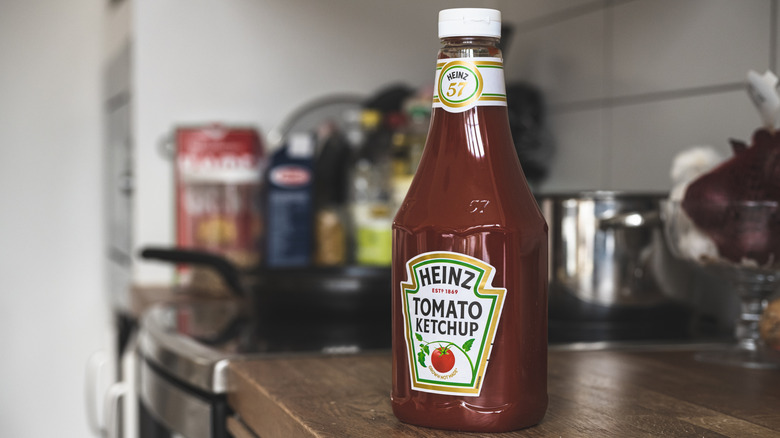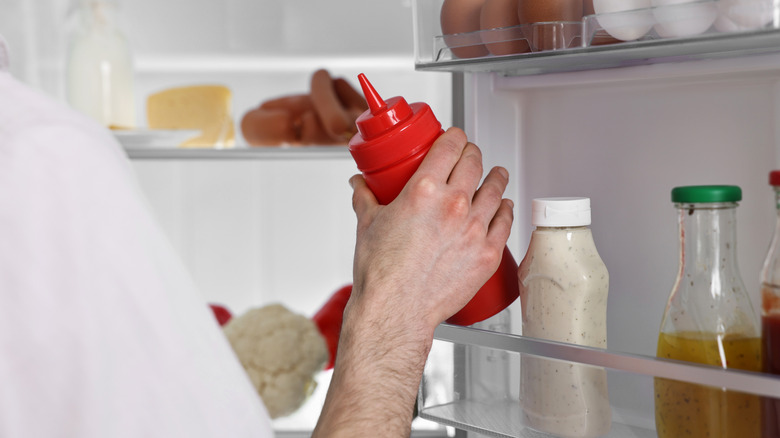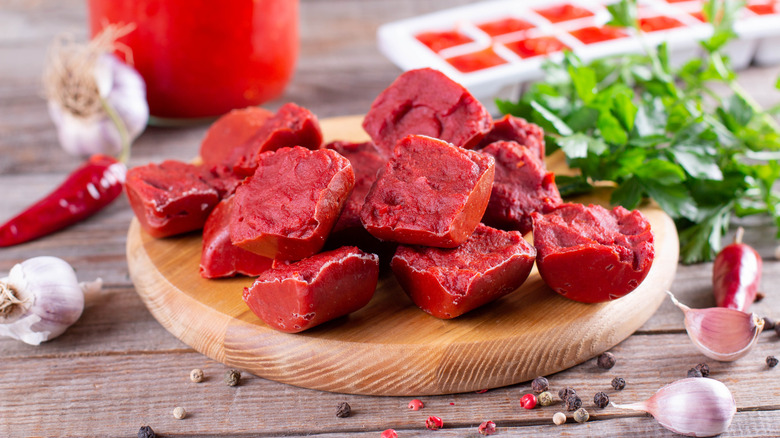Can You Freeze Ketchup (And Should You)?
Ketchup is one of the most versatile condiments around, as good for dipping fries as it is in a marinade. While some quibble over the best store-bought ketchup brands, others simply forego the supermarket and make their own at home. Whatever you choose to do, it might have crossed your mind to extend your ketchup's shelf life by freezing it, but can you?
Ketchup, whether store-bought or homemade, can absolutely be frozen (like many condiments, except those that contain dairy). Ketchup will actually keep indefinitely in the freezer, though as time goes by it might taste less and less flavorful. For the best possible quality, frozen ketchup should be used within six months, so be sure to label the container with the date.
If you were also wondering if you could freeze those McDonald's ketchup packets that come with your takeout burger and fries, the answer is yes — and they actually have a further use, besides eating. Once frozen, those little packets make great miniature ice packs for lunch boxes.
Okay, but should you freeze ketchup?
Does freezing and thawing ketchup ruin its taste or texture to the point where you're better off just leaving it in the fridge? It's true, once thawed, some of the flavor might be a bit muted, but if you're okay with your ketchup's characteristic tang being a little less vibrant, then by all means. Consistency-wise, that ketchup will likely be more watery once thawed; it'll definitely be different from a non-frozen, just-opened bottle. However, a texture change will hardly be noticeable when you are throwing together some homemade barbecue sauce or making meatloaf for dinner. Whether you like thawed ketchup for dipping is ultimately a matter of personal preference.
Ketchup has a pretty great shelf life on its own; once opened, it can last up to six months in the fridge (and yes, it should be kept refrigerated). So do you even really need to freeze it? Likely not, but if you find yourself tossing bottles more frequently than you'd like because you can't remember when you opened them, or if you like to buy ketchup in bulk, freezing can give you some peace of mind.
How to freeze ketchup like a condiment pro
If you do opt for freezing your ketchup, there are a few things you should know. First, if you bought ketchup in a glass bottle, you're better off transferring it to an airtight, freezer-safe, plastic vessel. The reason for this is that ketchup is primarily liquid, and because water expands when it freezes, the bottle could shatter. If you have ketchup in a plastic container, however, you're fine just freezing that.
If you want to be really clever about it, though, instead of having to wait for an entire bottle or jar to thaw, you can instead freeze your ketchup in an ice cube tray or silicone mold. Once the ketchup is set, pop out the cubes and store them in an airtight container or freezer-friendly plastic bag. This way, you'll have individual portions ready to go, and they'll thaw so much faster in your fridge.


